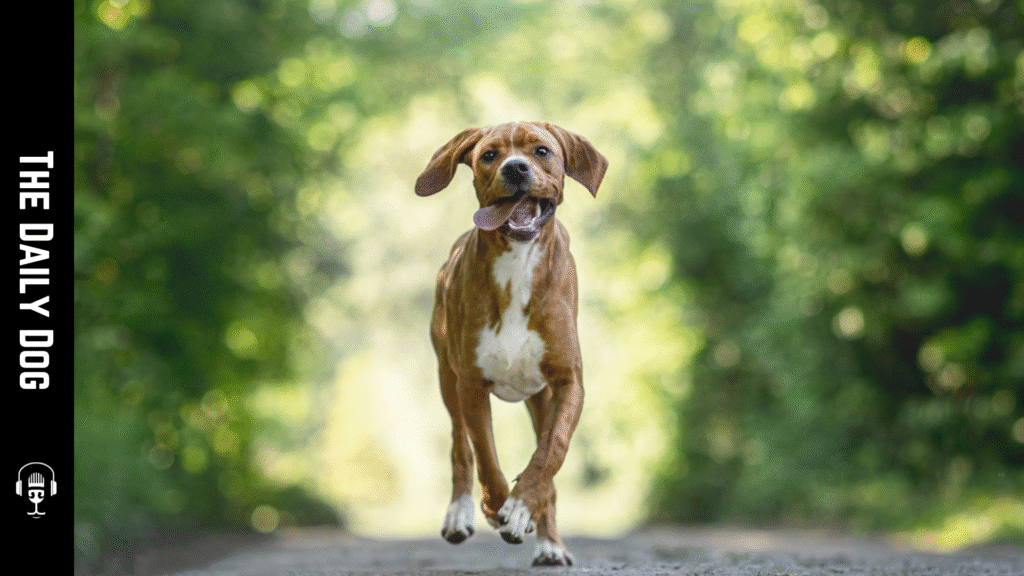The Portuguese Pointer, also known as the Cão de Santo Humberto, is a remarkable breed renowned for its exceptional hunting skills, graceful appearance, and loyal nature. This versatile breed has a rich history rooted in Portugal, where it has been a trusted companion for hunters for centuries. Whether you’re a seasoned hunter looking for a reliable partner or a dog enthusiast interested in a beautiful and active breed, the Portuguese Pointer offers a compelling combination of qualities that make it an outstanding choice.
Origins and History
The Portuguese Pointer’s origins trace back several centuries to Portugal, where it was developed primarily as a hunting dog. This breed has been used for upland game hunting, including birds and other small game, owing to its keen sense of smell, agility, and stamina. The breed’s ancestors are believed to include various pointing breeds brought to the Iberian Peninsula by traders and explorers, which were then selectively bred to enhance their hunting capabilities.
Throughout history, the breed was highly valued by Portuguese hunters for its ability to locate and indicate game precisely. Its reputation spread beyond Portugal, gaining recognition in other countries for its hunting prowess and elegant appearance. Despite its long-standing history, the Portuguese Pointer remains relatively rare outside of its native country, making it a unique and intriguing breed for dog enthusiasts worldwide.
Physical Characteristics
The Portuguese Pointer is an elegant, medium-sized dog that exudes agility and grace. Its distinctive appearance makes it easily recognizable among other pointing breeds. Here are some key physical features of this breed:
- Size: The breed typically stands between 19 and 23 inches (48 and 58 cm) at the shoulder, with males generally slightly larger than females.
- Weight: Adult Portuguese Pointers usually weigh between 44 and 66 pounds (20 and 30 kg).
- Build: They have a well-proportioned, muscular body designed for endurance and agility. Their stance is proud and alert, reflecting their keen hunting instincts.
- Coat: The breed has a short, dense coat that is weather-resistant, perfect for outdoor activities in various climates.
- Color: Common coat colors include white with liver, orange, or lemon patches. The breed’s markings are often symmetrical and add to its striking appearance.
- Head and Expression: They possess a refined head with a slightly rounded skull, expressive almond-shaped eyes that are typically dark brown, and a straight, strong nose.
- Ears: Their ears are set high and hang close to the cheeks, contributing to their alert expression.
- Tail: The tail is usually docked in countries where this practice is permitted, but in regions where it’s not, it is carried high and expresses the dog’s emotions.
Temperament and Personality
The Portuguese Pointer is celebrated for being friendly, intelligent, and energetic. It’s a breed that thrives on companionship and requires plenty of physical and mental stimulation. Here are some notable traits:
- Loyal and Affectionate: This breed forms strong bonds with its family and often seeks human interaction. They are known to be loving and gentle, making them great family pets.
- Highly Intelligent: Their keen mind makes them quick learners, and they excel in obedience training when properly motivated.
- Energetic and Playful: As a working breed, they have a lot of stamina and enjoy outdoor activities such as running, hiking, and hunting.
- Alert and Watchful: Their natural hunting instincts extend to being alert watchdogs, often warning their owners of any unusual activity.
- Sociable: Portuguese Pointers get along well with children and other pets, especially when socialized from a young age.
However, due to their high energy levels, they may become bored or destructive if left alone for long periods. Consistent training and engaging activities are essential to keep their minds and bodies healthy.
Training and Exercise Needs
Training a Portuguese Pointer can be a rewarding experience because of their intelligence and eagerness to please. Early socialization and basic obedience training are crucial to ensure they develop into well-mannered companions. Positive reinforcement methods, including treats and praise, work best with this breed.
Given their energetic nature, Portuguese Pointers require ample daily exercise. Activities that challenge their physical and mental abilities include:
- Hunting and Field Work: Their instincts make them excellent in hunting trials and field training.
- Running and Hiking: Long walks, runs, and hikes help burn off their energy.
- Interactive Play: Games like fetch, agility courses, and scent work keep their minds engaged.
- Socialization: Regular exposure to different environments, people, and animals helps prevent behavioral issues.
They might develop undesirable behaviors such as chewing or excessive barking without sufficient activity. They thrive in active households where their athleticism can be fully utilized.
Grooming and Care
The Portuguese Pointer’s short coat is relatively low-maintenance. It requires regular brushing to remove loose hairs and maintain a healthy coat. Weekly brushing is usually sufficient, but frequent grooming can help control hair loss during shedding seasons.
Bathing should be done as needed, typically every few months, or when they get filthy. Their weather-resistant coat requires only occasional cleaning to keep it in good condition.
Ear cleaning, teeth brushing, and nail trimming are essential parts of their grooming routine. Regular veterinary checkups ensure they remain healthy and free of common breed-specific health issues.
Health and Lifespan
The Portuguese Pointer is generally a healthy breed with a lifespan of around 12 to 14 years. Like many breeds, they are prone to certain health conditions, including:
- Hip Dysplasia: A common issue in medium to large dogs, which affects the hip joints.
- Elbow Dysplasia: Similar to hip dysplasia but affecting the elbows.
- Progressive Retinal Atrophy (PRA): An inherited eye disorder that can lead to blindness.
- Ear Infections: Regular ear cleaning helps prevent infections due to their floppy ears.
Responsible breeding practices and regular veterinary care can help mitigate these health risks. Maintaining a balanced diet, ensuring regular exercise, and routine health checks contribute to a long, healthy life for your Portuguese Pointer.
Ideal Living Environment
The Portuguese Pointer is best suited for active families or individuals who enjoy outdoor pursuits. They do well in homes with large yards where they can run freely, although they can adapt to apartment living if given sufficient daily exercise.
Because of their social nature, they thrive in households where they aren’t left alone for long periods. Their love for activity makes them ideal companions for outdoor enthusiasts, hunters, and active families.
Why Choose a Portuguese Pointer?
Choosing a Portuguese Pointer means welcoming a loyal, intelligent, and versatile companion into your life. Their striking appearance, friendly personality, and exceptional hunting skills make them a truly unique breed. Here are some reasons why this breed could be the perfect addition:
- Natural Hunting Ability: Their innate skills make them excellent in hunting and field trials.
- Loyal and Loving: They form strong bonds with their families and are great with children.
- Active and Energetic: Perfect for outdoor lovers seeking a high-energy companion.
- Low-Maintenance Grooming: Their short coat simplifies grooming routines.
- Unique Heritage: Owning a breed with a rich history and cultural significance adds to its charm.
The Portuguese Pointer is a breed that embodies elegance, agility, and intelligence. Whether used for hunting or as a family pet, they bring energy, loyalty, and a touch of Portuguese heritage into every home. Their active lifestyle and friendly disposition make them suitable for dedicated owners who can meet their physical and mental needs.
If you’re considering adding a Portuguese Pointer to your family, ensure you have the time and commitment to provide proper training, exercise, and care. In return, you’ll gain a devoted and capable companion who will enrich your life with their lively spirit and affectionate nature.
We offer a FREE Strategy Call.
Click on the graphic to learn more
Read More










